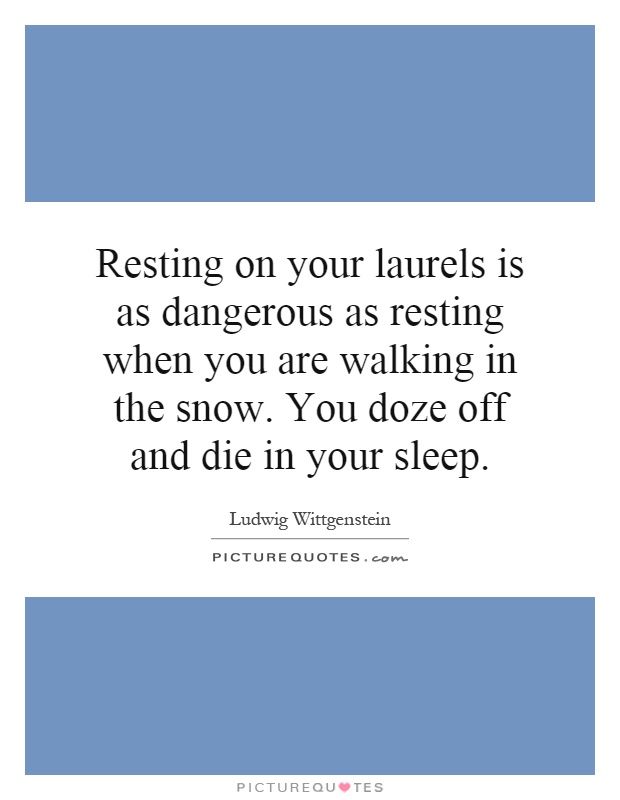Resting on your laurels is as dangerous as resting when you are walking in the snow. You doze off and die in your sleep

Resting on your laurels is as dangerous as resting when you are walking in the snow. You doze off and die in your sleep
Ludwig Wittgenstein, the renowned Austrian-British philosopher, was a firm believer in the idea that intellectual complacency was a dangerous trap that one must avoid at all costs. His philosophical works, particularly his later writings, emphasize the importance of constantly questioning and challenging one's beliefs and assumptions in order to truly understand the world around us.The quote "Resting on your laurels is as dangerous as resting when you are walking in the snow. You doze off and die in your sleep" perfectly encapsulates Wittgenstein's philosophy on the dangers of intellectual stagnation. Just as one must keep moving and stay alert when walking in the snow to avoid succumbing to the cold, one must also remain vigilant and engaged in their intellectual pursuits to avoid becoming stagnant and complacent.
For Wittgenstein, the act of resting on one's laurels – becoming satisfied with one's current knowledge and achievements – is akin to falling asleep while walking in the snow. It is a dangerous state of mind that can lead to intellectual death, as one becomes closed off to new ideas and perspectives. Wittgenstein believed that true understanding and growth could only come from a constant state of questioning and inquiry, pushing oneself to explore new avenues of thought and challenge preconceived notions.












 Friendship Quotes
Friendship Quotes Love Quotes
Love Quotes Life Quotes
Life Quotes Funny Quotes
Funny Quotes Motivational Quotes
Motivational Quotes Inspirational Quotes
Inspirational Quotes